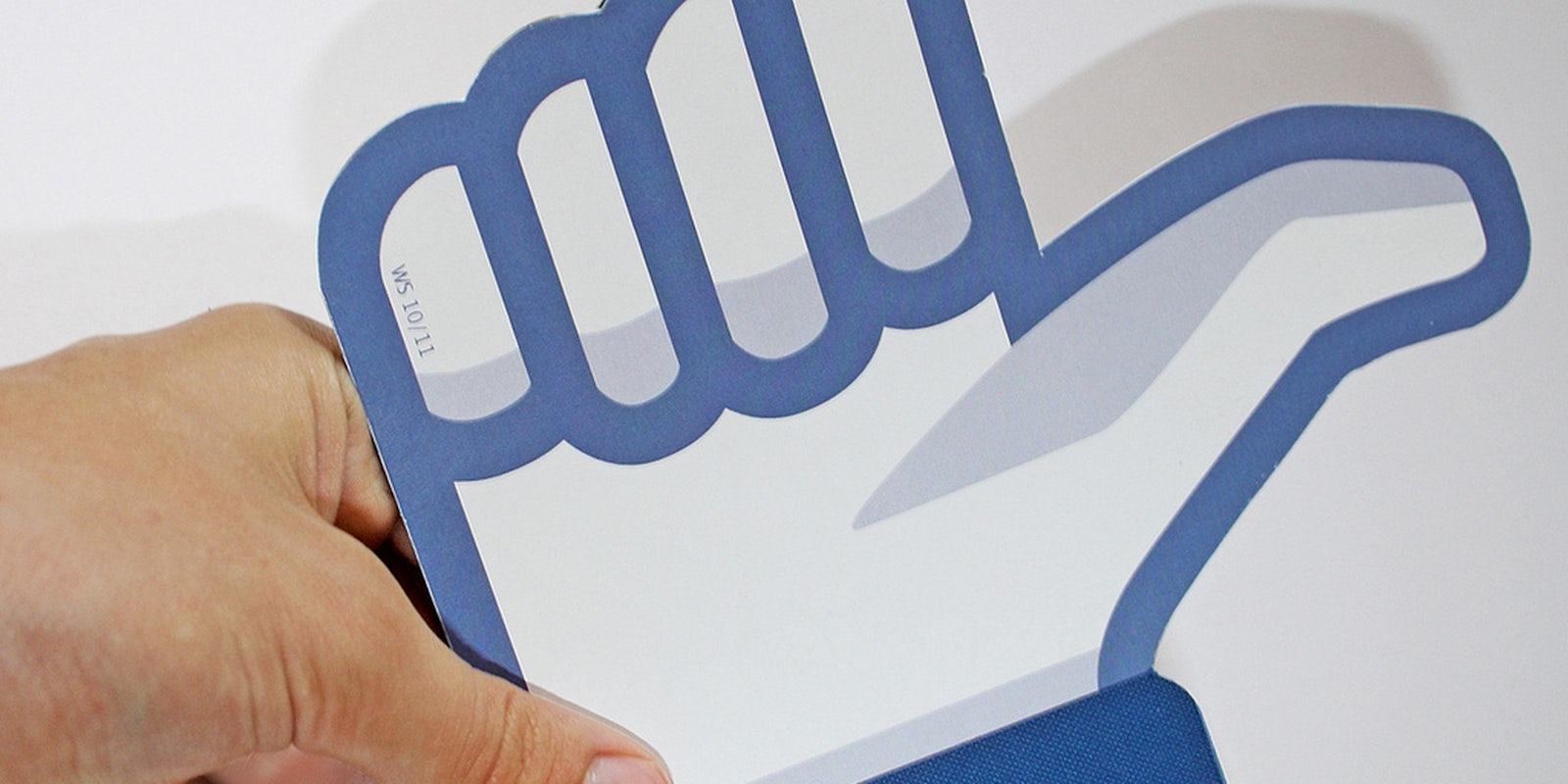Facebook is considering the idea of adding the oft-requested Dislike button to its products. At a public question and answer session yesterday at Facebook headquarters, CEO Mark Zuckerberg acknowledged that people want to express things other than positive feelings for status updates and comments.
The Like button isn’t a one-size-fits-all tool for status updates. It can feel insensitive to click Like when a friend posts about a sick pet, or photos from a funeral. But because the Like button has become so ingrained in the collective Internet consciousness, the meaning of the word “like,” itself has changed. People have come to understand that clicking Like on a status update may mean you don’t actually like it—you could simply just be acknowledging that a person’s post exists and that you saw it.
The word “dislike” evokes inherently negative feelings. While Facebook users might want to be able to tell friends or advertisers that they don’t like something, chances are people would be offended when their friends used the Dislike button against them. And by adding the polarizing opposite to the long-established Like, it would change how people interact with friends.
Facebook would also be providing a license to troll—it’s easy to imagine how awful people would feel when they post a photo of a new haircut or car, only to be inundated with thumbs-down. Everything isn’t likeable, and the struggle to balance the positive Like with the complex range of humans’ thoughts and feelings is one Facebook clearly experiences.
“A lot of times people share things on Facebook that are sad moments in their lives, or are tough cultural or social things, and often people tell us they aren’t comfortable pressing Like,” Zuckerberg said.
So instead of a Dislike button, here are a few alternatives—some of which Like already means… at least on Facebook.
Recommend
Facebook wants to be the most popular place to get news and information. But often news and current events are completely unlikable. When a friend posts a news story like “Asthma didn’t kill Eric Garner—racism did,” a Like seems callous. Instead, a Recommend button could demonstrate interest in the article, without displaying a positive emotion to the content.
Many news sites already use Recommend instead of Like on their websites, so it makes sense to extend the option to Facebook itself.
Sympathize
Facebook considered a Sympathize button back in 2013, but the cure for the guilty Like never made it to our News Feeds. It would be nice to have an option to gently let your friends know you’re there for them, without making it appear that you’re enjoying their sorrow.
Commiserate (or Same)
Sometimes you might feel that your friend’s terrible status update is almost too relatable. Are you both hungover after a night of too much fun? Did you both just fail your midterms? Facebook could let you commiserate without doing much more work than a simple click. Because sometimes, that’s all it takes.
Rage
A Rage button would be perfect for those times it takes too much effort to reply to a friend’s ignorant status update, or your notifications turn into a stinking pile of garbage after commenting with the correct opinion no one seems to agree with.
Acknowledge
Nothing says, “Hi, I’ve seen this status update, and I wanted to engage with your post without making any sort of emotional or personal attachment to it,” like an Acknowledge button. This would also be useful for the informal Facebook polls we ask of our friends that require a simple click, without really committing to anything else.
The danger of adding anything more than the Like is that once Facebook breaks that barrier, an endless stream of possible buttons could fill up the News Feed. Trying to decide which button to click could eventually become more trouble than it’s worth. However, by providing more options, it would mean people would interact with Facebook even more—the internal conflict of avoiding a status update because Like just isn’t the right word will disappear.
And if Zuckerberg does decide to give us more buttons to push, Facebook users could take back the Like, and that particular word will once again mean something that we find enjoyable.
Photo by Facebook(let)/Flickr (CC BY 2.0)


